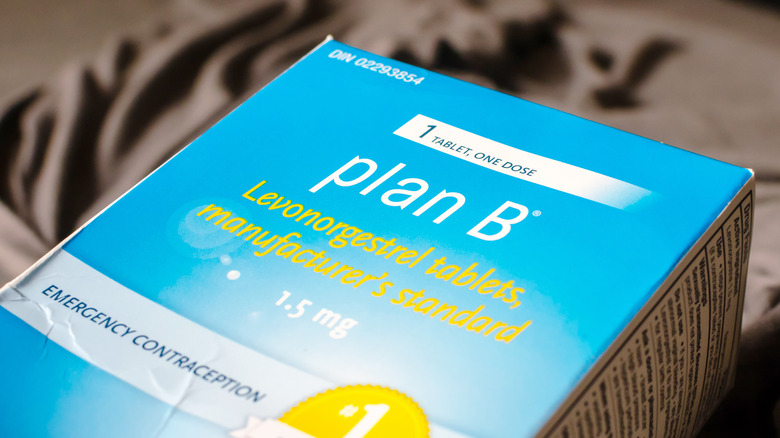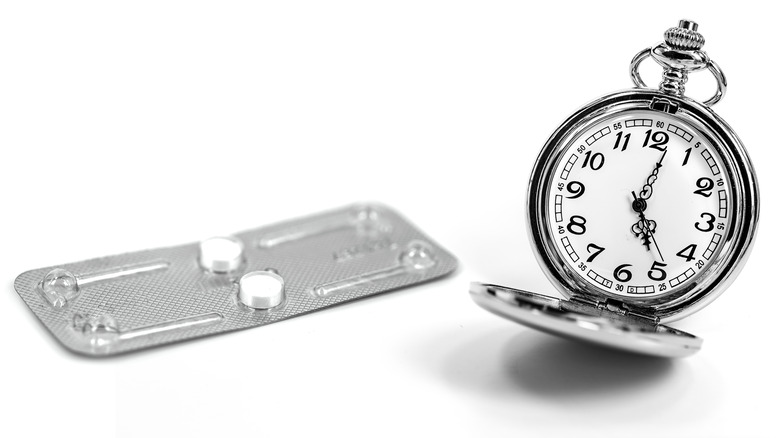The Big Difference Between Plan B And Take Action
Plan B and Take Action are emergency contraceptive pills that are designed to help prevent unwanted pregnancy in anyone who can become pregnant. Both pills contain the hormone levonorgestrel, which works by temporarily preventing the release of an egg from one of your ovaries, eliminating the risk of fertilization (via Planned Parenthood).
While emergency contraception is not meant to be used in place of regular contraception, like IUDs or birth control pills, it can be used as a backup method in cases of emergency. For instance, you can use emergency contraceptive pills if you had unprotected penetrative vaginal sex, forgot to take your birth control pills or change your patch or ring, or if the condom broke during sex.
Both the Plan B and Take Action morning-after pills are most effective when taken within 72 hours after having unprotected sex. However, they can still be taken up to 5 days later. As it turns out, your weight may also impact the effectiveness of these pills. For example, if you weigh more than 155 pounds, Plan B and Take Action may not work as well. But what are the key differences between these two pills?
What is the difference between Plan B and Take Action?
The main difference between the two emergency contraceptive pills is the cost. Take Action is the generic version of Plan B (via Medical News Today). Generally speaking, generic medications tend to cost less than brand name drugs. While both pills are safe and effective, the price of Plan B can range anywhere from $40-50. Take Action, on the other hand, is generally cheaper and can cost up to 20% less than its brand name counterpart.
If you have private health insurance or Medicaid, however, you may be able to get either medication for free or at a significantly reduced price. It is worth noting that both drugs are over-the-counter and do not require a prescription. Overall, both the Plan B and Take Action morning-after pills are equally as effective and can cause many of the same mild, side effects, like breast tenderness and nausea. Whichever one is best for you is a matter of personal preference.


